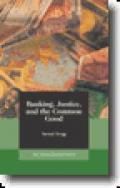


What is Holy Week?
Holy Week is the week before Easter, a period which includes the religious holidays of Palm Sunday, Maundy Thursday, Good Friday, and Holy Saturday. Holy week does not include Easter Sunday.
When did Holy Week get started?
The first recording of a Holy Week observance was made by Egeria, a Gallic woman who made a pilgrimage to the Holy Land about 381-384. In an account of her travels she wrote for a group of women back in Spain, Egeriadescribes the Palm Sundayshe observed in Jerusalem:
. . . all the children who are [gathered at the top of the Mount of Olives], including those who are not yet able to walk because they are too young and therefore are carried on their parents’ shoulders, all of them bear branches, some carrying palms, others, olive branches. And the bishop is led in the same manner as the Lord once was led.
What is Palm Sunday?
Palm memorates Jesus’triumphal entry into Jerusalem, an event mentioned in all fourcanonical Gospels.In many Christian churches, Palm Sunday includes a procession of the assembled worshipers carrying palms, representing the palm branches the crowd scattered in front of Jesus as he rode into Jerusalem.Because of the difficulty in some parts of the world ofprocuring palms for Palm Sunday, leaves from yew, willow, olive, or other native trees are frequently used. The Sunday was often designated by the names of these trees, as Yew Sunday, or by the general term Branch Sunday.
What is Spy Wednesday?
An archaic and infrequently used name for the Wednesday before Easter is “Spy Wednesday”, named for Judas’ ing a spy for the Sanhedrin.
What is Maundy Thursday?
Maundy Thursday is the day before Good Friday. The term “Maundy” is derived from the Latin mandment). The term refers to mandment given by Jesus at the Last Supper: “A mandment I give to you, that you love one another: just as I have loved you, you also are to love one another.” (John 13:34)
What is Good Friday?
Good memorates the crucifixion of Jesus Christ and his death at Calvary.The historical origins of the “Good” in Good Friday remain unclear, though some entomologists believe the term “good” is an archaic form of “holy.” The holiday isalso known asknown as Holy Friday, Great Friday, and Black Friday.
What is Holy Saturday?
In Catholic and Eastern Orthodox traditions, Holy memorates the “harrowing of hell,” the time between his Crucifixion and his Resurrection when Christ is believed to have descended into hell. Some Protestants, however, don’t believe that Scripture warrants believing the claim, found in the Apostle’s creed, that “[Christ] descended into hell.” As evangelical pastor-theologian John Piper says, “there is no textual basis for believing that Christ descended into hell.”
What is thePaschal Triduum?
Paschal Triduum isthe period of three days that begins with the liturgy on the evening of Maundy Thursday (the vigil of Good Friday) and ends with evening prayer on Easter Sunday, the three-day period therefore from the evening of Maundy Thursday (excluding most of Thursday) to the evening of Resurrection Sunday. It recalls the passion, death, burial, and resurrection of Jesus, as portrayed in the canonical Gospels. Other terms for the holiday period areEaster Triduum, Holy Triduum, Paschal Triduum, or The Three Days.
What does the term Easter mean?
The Christian scholar Bede (673-735 AD, aka, the Venerable Bede) claimed in his bookDe Ratione Temporumthat Easter was named after Eostre, a pagan goddess of the Saxon people in Northern Europe. Later scholars, however, claim that the term derives from the Anglo-Saxon word “oster”, meaning “to rise” or for their term for the Spring equinox, “Eostre.”









